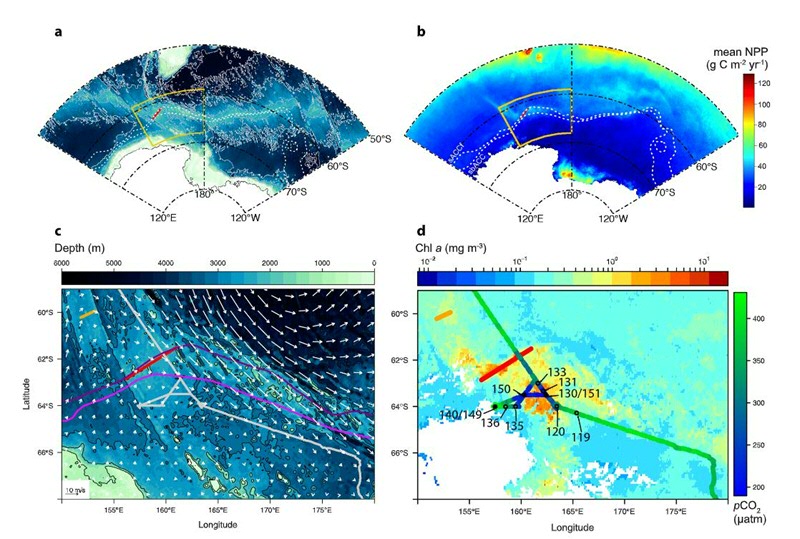Massive Southern Ocean phytoplankton bloom fed by iron of possible hydrothermal origin
Authors: Casey M. S. Schine, Anne-Carlijn Alderkamp, Gert van Dijken, Loes J. A. Gerringa, Sara Sergi4,Patrick Laan, Hans van Haren, Willem H. van de Poll & Kevin R. Arrigo.
Journal: Nature Communications.
Abstract
Primary production in the Southern Ocean (SO) is limited by iron availability. Hydrothermal vents have been identified as a potentially important source of iron to SO surface waters. Here we identify a recurring phytoplankton bloom in the high-nutrient, low-chlorophyll waters of the Antarctic Circumpolar Current in the Pacific sector of the SO, that we argue is fed by iron of hydrothermal origin. In January 2014 the bloom covered an area of ~266,000 km2 with depth-integrated chlorophyll a > 300 mg m−2, primary production rates >1 g C m−2 d−1, and a mean CO2 flux of −0.38 g C m−2 d−1. The elevated iron supporting this bloom is likely of hydrothermal origin based on the recurrent position of the bloom relative to two active hydrothermal vent fields along the Australian Antarctic Ridge and the association of the elevated iron with a distinct water mass characteristic of a nonbuoyant hydrothermal vent plume.

More news
-
15 September 2025
Successful visit to the UG by Rector of Institut Teknologi Bandung
